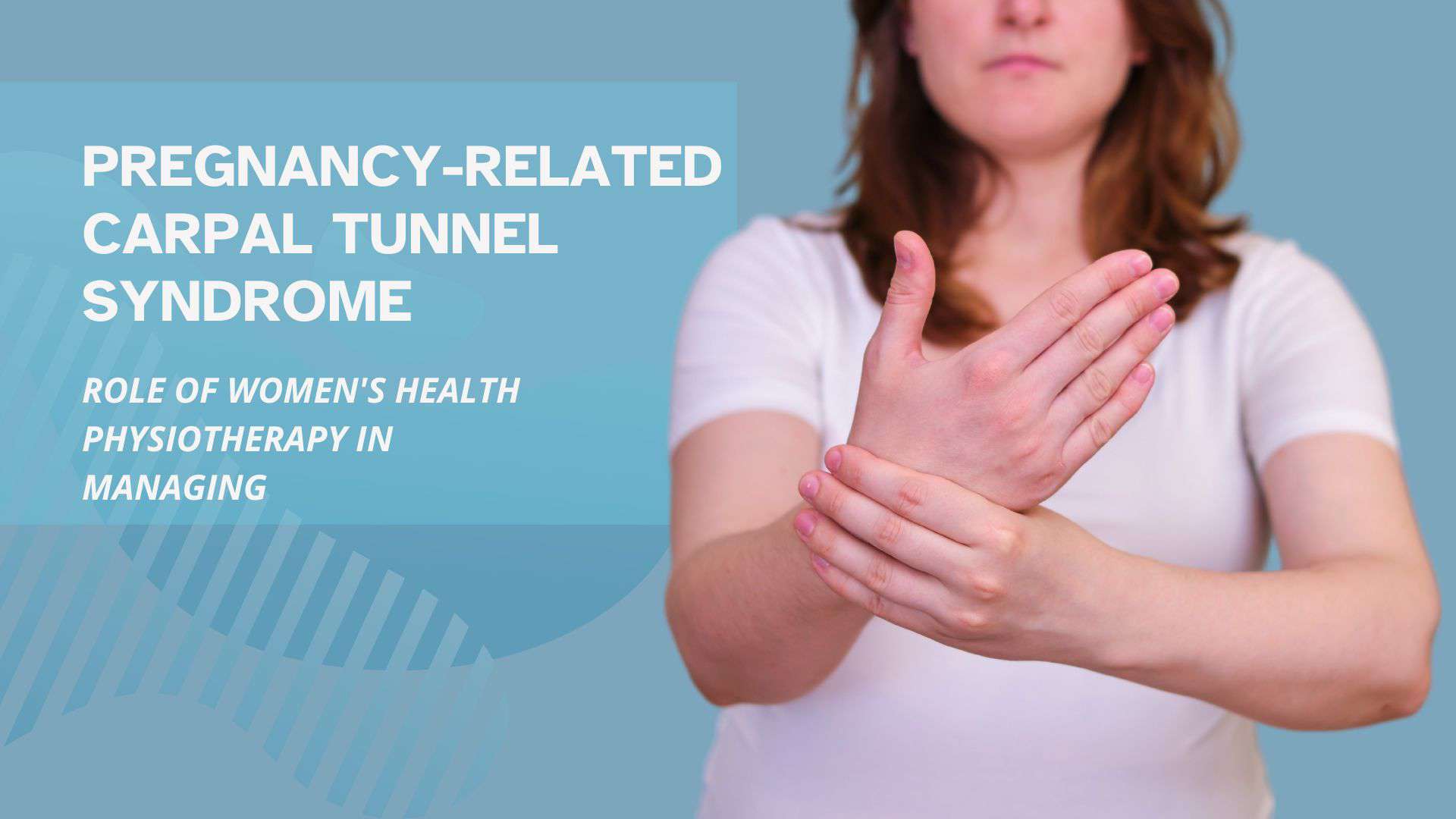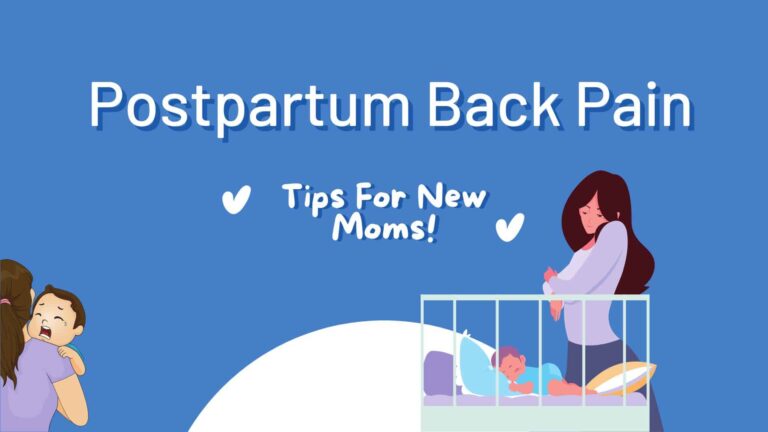Pregnancy-Related Carpal Tunnel Syndrome
Pregnancy is undoubtedly a beautiful journey, but it can also bring various unexpected challenges along the way. One such challenge that many expectant mothers face is carpal tunnel syndrome (CTS). While CTS is commonly associated with repetitive hand movements or underlying health conditions, it can also occur during pregnancy.
Carpal tunnel syndrome can be more than just an annoyance; it can affect your daily activities and even disrupt a good night’s sleep.
Pregnancy-Related Carpal Tunnel Syndrome and The Role Of Women’s Health Physiotherapy In Managing
Women’s health physiotherapy is a specialized branch of physiotherapy that focuses on addressing the unique needs and conditions of women, including pregnancy-related issues. It is a valuable and effective resource for treating and managing pregnancy-related carpal tunnel syndrome through various techniques.
In this blog post, we will focus on the topic of pregnancy-related carpal tunnel syndrome, exploring its causes, symptoms, treatment options and how women’s health physiotherapy can be of significant help. We’ll cover everything from early signs to helpful carpal tunnel syndrome pregnancy treatment options that could bring relief without compromising your health or your growing baby.
Move confidently as we explore strategies to ease carpal tunnel discomfort together!
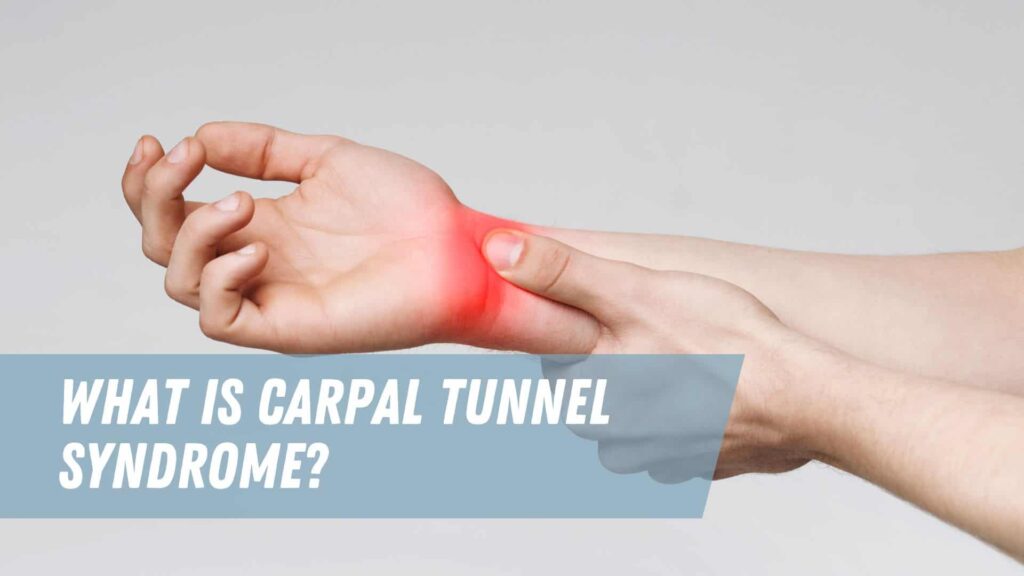
What is carpal tunnel syndrome?
The carpal tunnel is a narrow passageway of bones and ligaments located at the base of your hand.
Carpal tunnel syndrome is characterized by median nerve compression as it passes through the carpal tunnel in front of the wrist.
This swelled area interferes with nerve signals, causing uncomfortable sensations of pain, numbness, and tingling sensations in the hands and fingers.
Pregnancy-related carpal tunnel syndrome
Carpal tunnel syndrome is a common condition during pregnancy, affecting up to 62% of pregnant individuals during pregnancy. Hormonal changes can lead to increased fluid retention and swelling throughout the body.
This fluid buildup can cause pressure on nerves, including the median nerve in the wrist. The resulting compression may give rise to symptoms similar to those experienced with traditional carpal tunnel syndrome that can cause discomfort and functional impairment.
It often happens in the late second and third trimesters when you have even more fluid in the body.

Common causes of pregnancy-related carpal tunnel syndrome
During pregnancy, the complex interplay of hormonal shifts and fluid retention contributes to conditions conducive to the development of pregnancy carpal tunnel syndrome. This situation escalates as increased pressure on the median nerve in your wrist intensifies, potentially leading to discomfort and impaired hand function.
Hormonal changes:
Your body undergoes many changes while you’re pregnant, and your hormones work overtime. Hormones play a big part in this condition because they affect how much fluid stays in your body.
These hormonal shifts can cause your tissues to hold more water, making them swell up. This swelling might pinch the nerves in your wrists and lead to carpal tunnel syndrome. It’s like when a garden hose gets stepped on, and the water can’t flow; similarly, pressure on your nerves from swelling can make your hands feel tingly or numb.
Fluid retention:
You might notice your body holds on to more water during pregnancy. This is common and can make parts of your body swell, like your wrists. The extra fluid puts pressure on the median nerve in your wrist, and this pressure can lead to carpal tunnel syndrome.
Swollen tissues around nerves are one reason for the numbness or pain you feel in your hands.
Increased blood volume:
Pregnancy causes blood volume to double, increasing pressure and swelling in the blood vessels throughout your body. In tight spaces like the carpal tunnel, this increased volume can compress the median nerve, which runs to the hand.
Weight gain:
Being overweight or obese before becoming pregnant can increase the risk of CTS, although the exact relationship is unclear. As expectant mothers gain weight during pregnancy, additional stress is placed on their joints and nerves. This added weight can exacerbate symptoms of carpal tunnel syndrome.
Pregnancy-related conditions:
Conditions like gestational diabetes and hypertension can lead to fluid retention and subsequent swelling, increasing the risk of CTS. High blood sugar levels can also cause inflammation, including pregnancy carpal tunnel.
Past pregnancies:
The hormone relaxin, which helps the pelvis and cervix expand during pregnancy in preparation for childbirth, may be seen in higher amounts in subsequent pregnancies. It can cause inflammation in the carpal tunnel, pressing the median nerve.
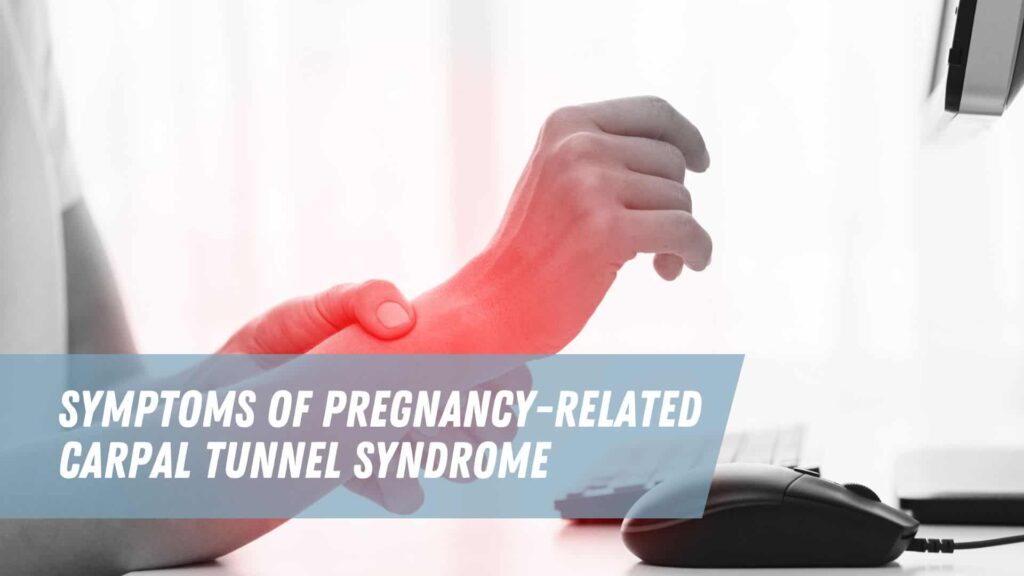
Symptoms of pregnancy-related carpal tunnel syndrome
Recognizing the symptoms of pregnancy-related carpal tunnel syndrome is crucial for early detection and timely treatment. Common symptoms include:
- Pain or discomfort in the wrist, hand, or fingers
- Numbness or tingling sensations in the thumb, index finger, middle finger, and half of the ring finger
- Weakness or difficulty with pain during gripping objects
- Hand clumsiness or a tendency to drop things
It’s important to note that while CTS is common during pregnancy, in most cases, symptoms will go away after the baby is born.
Diagnosis of pregnancy-related carpal tunnel syndrome
The diagnosis of pregnancy-related CTS is primarily based on the patient’s description of symptoms and a physical examination by a healthcare provider.
Symptoms typically include numbness and tingling in the fingers, wrists, and hands, often worsening at night. Some individuals may also experience a throbbing sensation in the hands, wrists, and fingers, swollen fingers, and difficulty gripping objects or performing fine motor skills.
In some cases, the condition can cause weakness in the hand, making it difficult to perform everyday tasks such as shampooing hair, fastening buttons, or holding a toothbrush. These symptoms can range from mild to severe and can affect sleep and daily activities.
When to seek medical advice for pregnancy carpal tunnel syndrome
If you’re pregnant and experiencing symptoms of CTS, it’s important to seek medical advice. While the condition is common during pregnancy and often resolves after childbirth, it can significantly impact your quality of life and ability to perform daily tasks.
You should consult with a healthcare provider if:
- The symptoms are severe or worsening.
- You’re having increased difficulty performing daily tasks.
- If the grip gets weak and holding things gets harder, like when you pick up a cup or open a door
- The symptoms persist for more than three months after childbirth

Treatment options for pregnancy-related carpal tunnel syndrome
While treatment for pregnancy-related carpal tunnel syndrome may vary depending on individual cases, several measures can help alleviate symptoms:
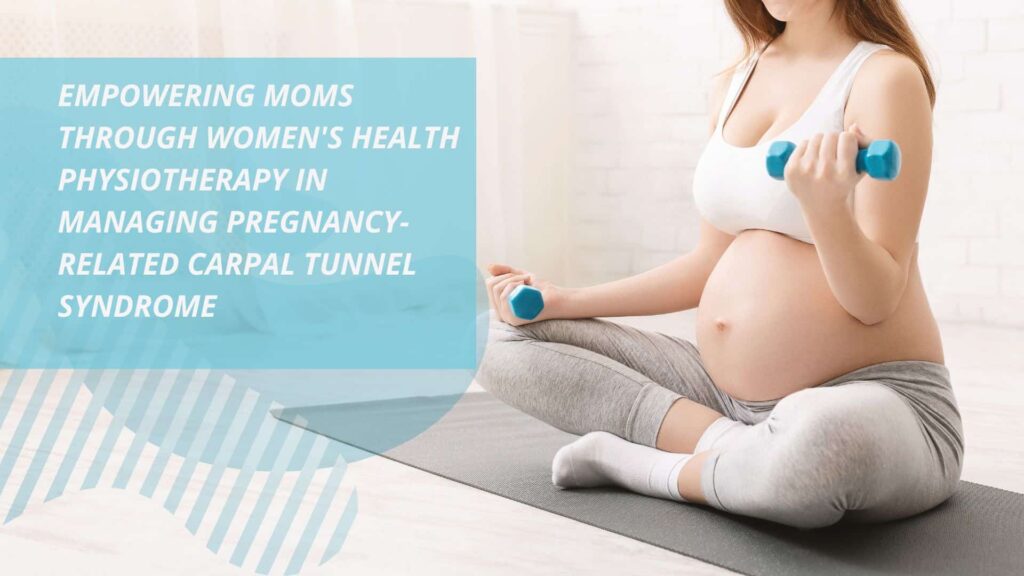
Empowering moms through women’s health physiotherapy in managing pregnancy-related carpal tunnel syndrome
Women’s health physiotherapy is a helpful and practical aid for treating and managing pregnancy-related carpal tunnel syndrome through various techniques and approaches, including:
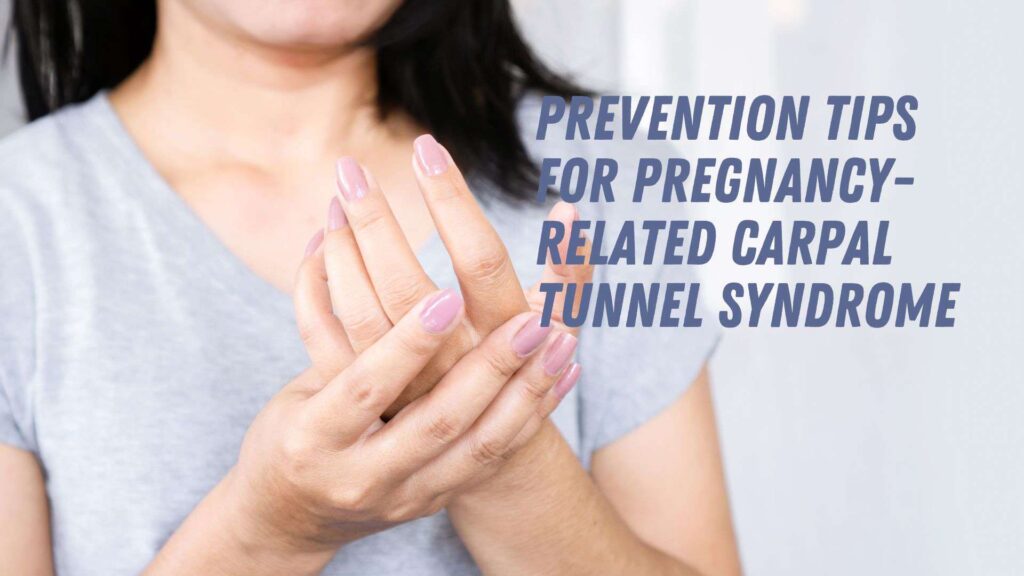
Prevention tips for pregnancy-related carpal tunnel syndrome
While not all cases of pregnancy-related carpal tunnel syndrome can be prevented, there are steps you can take to reduce your risk or minimize symptoms:
Navigating the Challenges of Carpal Tunnel Syndrome in Pregnancy with Physiotherapy
Pregnancy is an incredible journey filled with joyous moments, but it can also present unforeseen challenges, such as carpal tunnel syndrome. Pregnancy-related carpal tunnel syndrome can be a challenging aspect of the maternal journey, but with the assistance of a women’s health physiotherapist, expectant mothers can find relief and support.
The holistic approach taken by physiotherapists addresses not only the symptoms but also focuses on empowering women with the knowledge and tools to manage their condition. By incorporating physiotherapy into prenatal care, we can enhance the overall well-being of pregnant women, ensuring a more comfortable and enjoyable pregnancy experience.

Cynthia Pathipati – Registered Physiotherapist
Cynthia Pathipati completed her bachelor’s in physiotherapy and is a qualified Registered Physiotherapist in good standing with the College of Physiotherapists of BC with more than 15 yrs of experience. She has Post-Graduate Credentials and Certifications as well as extensive knowledge experience in treating pelvic floor, orthopedic, neurological, vestibular and pain conditions.

